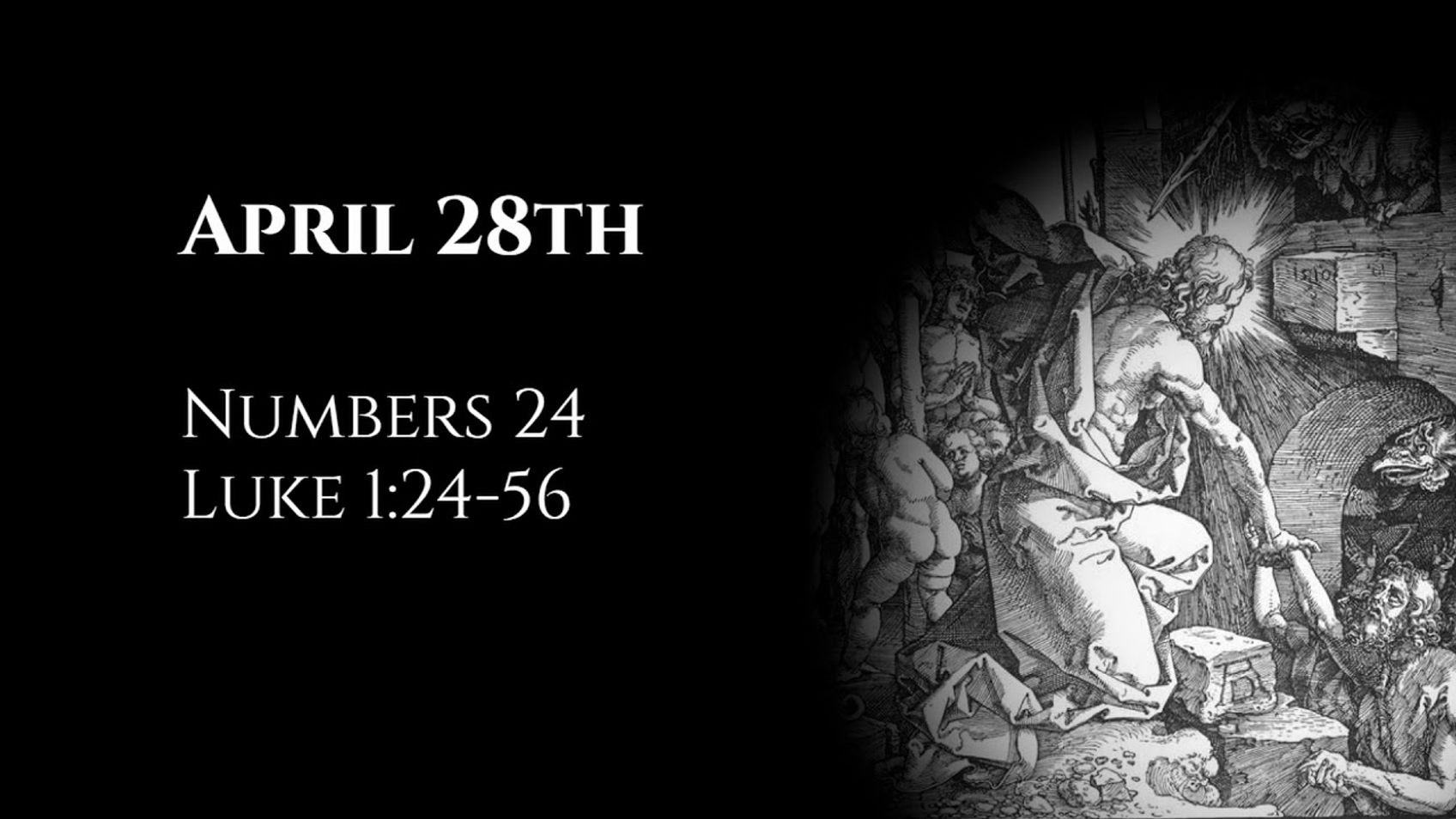April 28th: Numbers 24 & Luke 1:24-56

Balaam's further oracles. The annunciation of the birth of Jesus.
Some passages referenced:
Genesis 49:9-10 (blessings of Judah); Genesis 12:1-3 (blessings of Abraham); 2 Samuel 8:2, 11-15 (David’s victories over other nations); Exodus 17:8-16 (battle against the Amalekites); Genesis 25:3 (Asshurim); Jeremiah 48:45, Daniel 11:30 (later allusions to Balaam’s prophecies).
Daniel 8:16, 9:21 (the Angel Gabriel); Luke 1:76 (John the Baptist as the Prophet of the Most High); Isaiah 7:10-17 (the virgin giving birth); 2 Samuel 7:12-14 (the Davidic covenant); Genesis 1:2 (Spirit hovering over waters); Exodus 40:34-35 (cloud overshadowing the tabernacle); Genesis 18:14 (nothing impossible with God); 2 Samuel 6:14-16 (David leaping before the Ark); Judges 5:24 (blessing of Jael); Genesis 3:15 (crushing the serpent’s head); Luke 23:44 (darkness over the face of the land from the sixth to the ninth hours); 1 Samuel 2:1-10 (Hannah’s prayer); Psalm 113:7-9 (allusions to Hannah’s prayer).
Reflections upon the readings from the ACNA Book of Common Prayer (http://bcp2019.anglicanchurch.net/).
If you have enjoyed my output, please tell your friends. If you are interested in supporting my videos and podcasts and my research more generally, please consider supporting my work on Patreon (https://www.patreon.com/zugzwanged), using my PayPal account (https://bit.ly/2RLaUcB), or by buying books for my research on Amazon (https://www.amazon.co.uk/hz/wishlist/ls/36WVSWCK4X33O?ref_=wl_share).
The audio of all of my videos is available on my Soundcloud account: https://soundcloud.com/alastairadversaria. You can also listen to the audio of these episodes on iTunes: https://itunes.apple.com/gb/podcast/alastairs-adversaria/id1416351035?mt=2.
More From Alastair Roberts
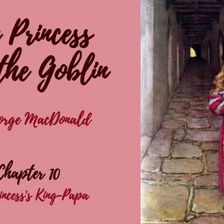


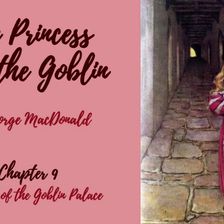
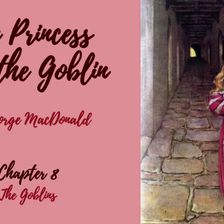
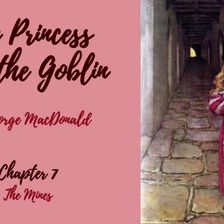
More on OpenTheo















